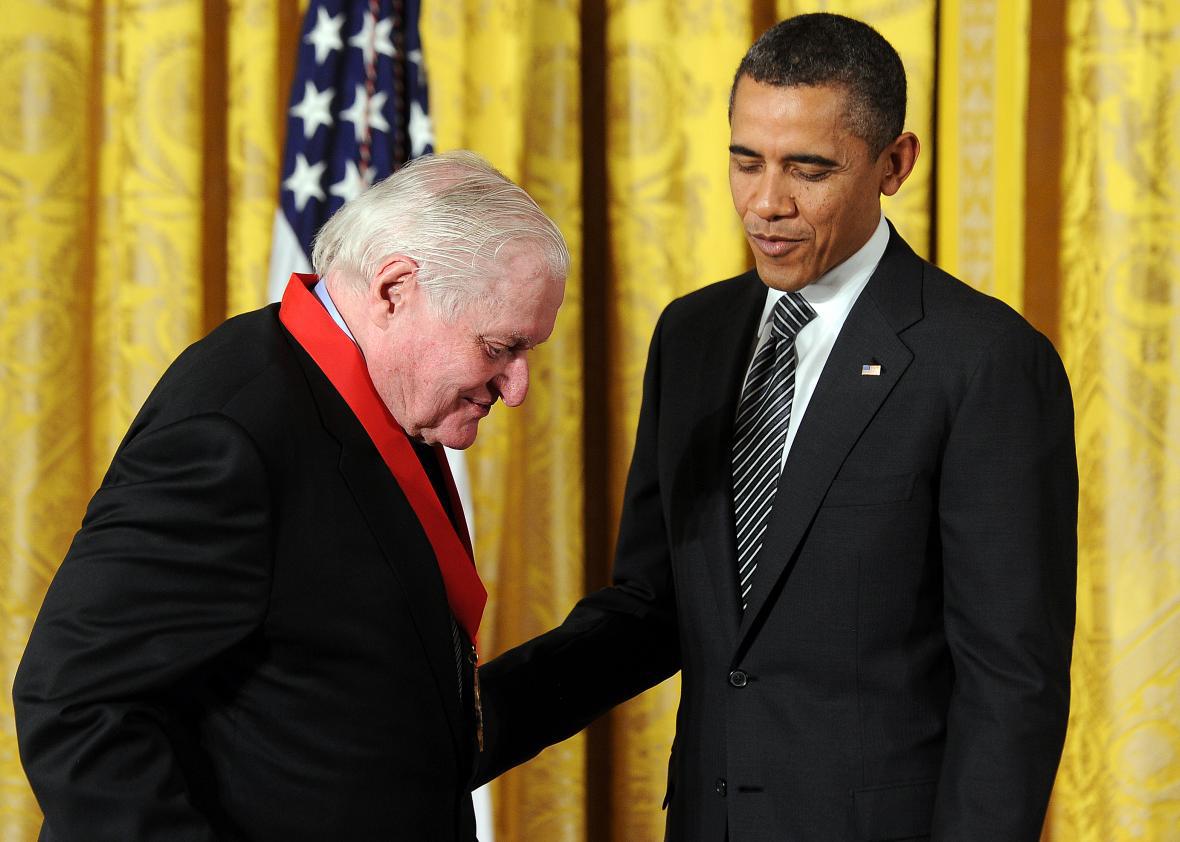Poet John Ashbery died Sunday at the age of 90, the Guardian reports. Ashbery was one of America’s most celebrated and influential poets, with a long list of accolades including a Pulitzer Prize, a National Book Award, a MacArthur “Genius Grant” and a Guggenheim Fellowship.
Ashbery was born in 1927 in Rochester, New York and began publishing poetry as a student at Deerfield Academy. At Harvard, he wrote a thesis about W. H. Auden; in 1956—after Ashbery had picked up an M.A. from Columbia and spent a few years as a copywriter—Auden selected his collection Some Trees for a Yale Younger Poets Prize, his first of many such honors. Although he was associated with the “New York School” of poets, along with Harvard classmates Frank O’Hara and Kenneth Koch, he spent the group’s late-1950s-early-1960s heyday living in France, where he worked as an art critic and translator. Always close to the art world, he was fêted at Warhol’s factory when he returned to New York in 1965.
Starting with 1962’s The Tennis Court Oath, Ashbery’s work was often abstract to the point of near-opacity: Slate’s Meghan O’Rourke described him as “a radio transistor through which many different voices, genres, and curious archaeological remains of language filter,” a project that naturally became more relevant as the 20th century’s assault on the senses wore on. Mainstream success came with 1975’s Self-Portrait in a Convex Mirror, which hit the poetry trifecta, winning a Pulitzer Prize, a National Book Award, and a National Book Critics Circle Award. Its title poem, inspired by Parmigianino’s painting by the same name, is Ashbery’s masterpiece, freely mixing art criticism with a meditation on the nature of self and reality. Ashbery made a living teaching—asked if poetry paid his bills, he replied, “Heavens, no!”—and was a professor at Brooklyn College in the 1970s and Bard College from the 1980s until he retired in 2008. He is survived by his husband, David Kerman. When asked, in a 2011 interview with Time, “Are you, in fact, America’s most important living poet?” Ashbery offered the following thoughts on his legacy:
I don’t think so. Important? I get talked about a lot. For many years, the jury has been out—and probably always will be—on the question of my importance. I enjoy writing the way I do, which sort of doesn’t please a lot of people, and pleases others enormously.
